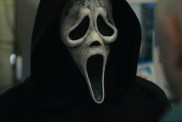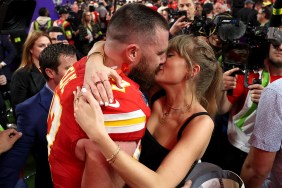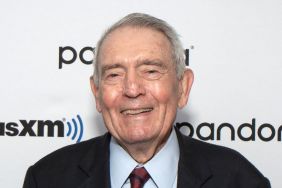If the cheers from within the Anaheim Convention Center’s Arena auditorium were any indication, director Wes Ball’s debut feature, The Maze Runner already has a strong fanbase tied to the source material by author James Dashner. The original novel was first published in 2009 and was followed by two sequels and a prequel, all of which unravel an epically-scaled mystery.
Dylan O’Brien (“Teen Wolf”) stars as Thomas, who awakens one day to find himself trapped in a massive maze with a group of other young men. Like the others, he has no memories of his past save for brief fragments and strange dreams. It’s only by navigating the maze that Thomas can attempt to find himself and, ultimately, escape.
ComingSoon.net caught up with Ball, Dashner, O’Brien and co-star Will Poulter (We’re the Millers, The Chronicle of Narnia: The Voyage of the Dawn Treader) just after the panel presentation to discuss the ambitious adaptation, the genre elements of the science fiction tale and the overall social themes of The Maze Runner.
CS: James, what was your initial thought when you learned the first time that your book was headed to the big screen?
James Dashner: It kind of went through a process. We optioned the book to Fox pretty early on. Of course, that was my first little burst of excitement. Then it went through some rounds with a different director. I’m glad that never happened. Like any movie, it had its ups and downs. I think it was about two years ago.
Wes Ball: About a year and a half ago, I think. This time last year, we were just about to start shooting.
Dylan O’Brien: It’s crazy that it’s coming up on a year, man.
Dashner: Movies have been my whole life. Even moreso than seeing my books published and becoming successful, this has been the highlight by far.
CS: There’s an element to the story very reminiscent of “The Twilight Zone” episode “Six Characters in Search of an Exit.”
Ball: Yeah, “The Twilight Zone” is the perfect example. That was kind of a before “Lost” influence. It’s a total “Twilight Zone” episode.
CS: Wes, when did you first come across the book?
Ball: Fox gave me the book after we were talking about my first short film, “Ruin,” over there. They pulled me aside and gave me this book. I went home and read it. Afterwards they asked me, “What would you do with this?” They gave me their version of the script at the time. I read the book and I kind of connected with it right away and started getting all kinds of ideas flooding in. I immediately went and started making some concept art. I still have one or two of those pieces that, like two days after I read the book, I made. I’ll put them out there at some point. There’s that first shot of the wall. This big, huge monolithic wall with a door opening and these little guys down at the bottom. That was the first thing I made and I was like, “Yes! I want to see this movie!”
O’Brien: It pretty much became the poster.
Ball: Totally. Those walls are characters. They’re things that these characters have to break out of.
Dashner: That’s amazingly parallel to when I first wrote the book. That’s the first thing I pictured. The maze. Then everything started coming from there.
Ball: So I went in and pitched on the movie and told them what I would do with it. They said, “Okay, great! You’re the director!” Three or four months later, we were basically shooting. We wrote the script top to bottom, basically.
CS: Dylan and Will, is it more or less of a challenge building characters whose own past is unknown to them?
O’Brien: It’s both, I guess. In different ways. It’s always informative to have a background and things to use and hang onto as your character. Then you also discover a lot about your character without knowing anything while just being it.
Will Poulter: Just reacting to the situation.
O’Brien: Exactly. Just living in it. Then again, maybe to not have anything fog your process is even better. I don’t know. It’s different for different things, but it’s cool.
Poulter: Yeah, it’s kind of double-edged sword syndrome playing a character who has been represented before in a book or in another movie if you were doing a remake. I would liken creating an original character to writing a book without a treatment or a narrative. You have to create something and you’re open to criticism because you want it to be believable. The tricky thing with playing a character that has already been represented is that you’ve got the added pressure of “are you how I imagined him? Are you actually living up to the traits that the vast majority of people imagine him having?” Then you also have a blueprint to follow. That’s the positive. There are aspects of Gally in the book that I could turn to if I was unsure or if I had questions that weren’t answered in the script. It’s a double-edged sword, but I’d say it’s awesome. The best thing about making a film out of a book like this is that we’ve been able to contact James’ fans and they’ve been able to contact us. We’ve developed a really great relationship with them. They’ve been so, so supportive and have really been behind us since Day One of pre-production, let alone filming. They’ve been with us every step of the way and they will until September 19th. Hopefully even further.
O’Brien: Yeah, the fandom can really grow. That’s what so cool about it.
Ball: Yeah, after the trailer came out, the book went back up on the New York Times bestseller list.
Dashner: In fact, we’ve had the biggest four weeks of sales ever. Including Christmas, release weeks. Anything.
O’Brien: It’s just so, so great. We’re lifting this from the book, which already has such an intimate, passionate following and fanbase. To take something that great and put it on a bigger scale is just incredible. To see it become implemented in society. That’s what I would love for this to be. To be “Lord of the Flies.”
Ball: It is a timeless adventure. I really do believe that this movie will stand the test of time at some point. There’s nothing that’s too modern or poppy to it.
Poulter: I think this is something that people aren’t necessarily going to be expecting, but it totally veers away from being a popcorn movie or being glossy or Hollywood or blockbustery. At the heart of this movie is character and relationships and experience. How they endure this challenge of escape.
CS: It seems like there’s an increased output of more brainy science fiction these days.
Ball: This isn’t necessarily “brainy” science fiction. It’s a mystery. That’s basically what it is. It’s a mystery with a big roller coaster ride of emotion. You want to solve this mystery before all Hell breaks loose. It’s weird but, in its simplicity, you get to have a lot of really intense emotions.
Dashner: I think there are brainy elements to it in terms of making you think about how the world works and how relationships work. Good and evil. Is it really black and white? It’s not just a brainless adventure. It does make you think.
Ball: Yeah, it poses a lot of questions. That’s the thing about the movie that’s really interesting.
Dashner: My goal with the books was that, when you finish the last book, you not be able to think of any character or any entity and not see both sides of their story. The phrase “wicked is good” is very purposeful because it’s such a dichotomy. It’s two sides of a coin. To me, that represented the whole series. What does that phrase mean? They captured that in the film perfectly.
CS: What has been the best fan experience for each of you so far?
O’Brien: It’s just been so exciting. They’ve been nothing but welcoming and supportive and positive. They’re just happy and as excited as we are. We had a great time on this movie. We had a great time coming together and making it. We really put everything into it. To have it be something we’re proud of it and and to have it be something that the fans are so excited for, too, just makes it such a great experience. It’s probably rare, I imagine. I mean I have a pretty young career. I’m going to be spoiled now.
Ball: It really is a fun experience, even beyond the stress and time pressure and the amount of actual work we’re putting into it. It was really, really great. We worked hard and had a lot of fun in the process. I’m already wondering how the next one is going to be.
O’Brien: What really excited me hearing the WonderCon crowd was not all the people that cheered. It was the people that didn’t cheer and came to it as strangers and gave it a look like, “This is awesome!”
Ball: It’s great to win over people who aren’t already fans.
O’Brien: Yeah. It was great to hear the fans and it was also great to see the people who were just quiet because they really thought it was cool.
Poulter: Yeah, I felt like we got an even bigger reaction after showing the trailer. Hopefully that’s people going, “That looks interesting and now I want to hear what these people have to say.” That’s really cool. I’m very excited by that.
Ball: I’m very excited for people to check out the movie. Like Dylan said, we’re all very proud of it.
CS: Can you tell me a little about what we’re going to be hearing as far as the soundtrack goes?
Ball: The composer is John Paesano. There’s a lot of firsts in this movie. A lot of people just kind of starting out in their careers, myself included. John is one of those guys. He kind of started with John Williams as a really young guy, assisting with him. Then he worked with Hans Zimmer for awhile. Then John Powell. He’s got this really eclectic mix of sound that’s kind of old school. Music that serves as its own character to the story. It also has this darker kind of edge to it. It’s a cool score. I’m a big soundtrack buff and him and I worked long hours. To two or three in the morning a lot of the time. After I would go cutting, I’d go to his studio. We’d sit and he’d be on the piano and he’d find these themes. I remember him playing Thomas’ theme for me. I had first wrapped the movie and he sent me an MP3. That was my time off, this lonely drive across the country. There was this one track that I just kept playing over and over and over again. That became the end credits of the film. It’ll be in there. It’s really fun.
CS: James, as you see this adaptation develop, is there anything specific you can point to that has really taken on a life of its own or tackles an aspect of the novels in a way that you hadn’t thought of looking at it?
Dashner: Absolutely. Sometimes I hesitate to say something because people might think I’m just blowing smoke, but I feel like — and this is not false modesty — “The Maze Runner,” fine. It was a good book. I feel like the movie took the book and just amplified all the things that were good about it. It just feels better than the book itself to me. The book will always be there for people to experience, but I just feel like — and maybe it’s because movies are my first love — but I feel like I’m more in love with the movie now than I was with the book. I haven’t seen the final version yet!
Poulter: Wow, man. That feels incredible hearing you say that. The last thing I think any of us want to do is here what you so often hear with adaptations, which is, “The movie’s good, but it’s not as good as the book.” If you feel that and have such a strong connection with your readership, hopefully they feel that, too.
Dashner: I’m their biggest cheerleader right now, I think!
The Maze Runner hits theaters on September 19.
The Maze Runner
-
The Maze Runner

-
The Maze Runner

-
The Maze Runner

-
The Maze Runner

-
The Maze Runner

-
The Maze Runner

-
The Maze Runner

-
The Maze Runner

-
The Maze Runner

-
The Maze Runner

-
The Maze Runner

-
The Maze Runner

-
The Maze Runner

-
The Maze Runner

-
The Maze Runner

-
The Maze Runner

-
The Maze Runner

-
The Maze Runner

-
The Maze Runner

-
The Maze Runner

-
The Maze Runner

-
The Maze Runner

-
The Maze Runner

-
The Maze Runner

-
The Maze Runner

-
The Maze Runner

-
The Maze Runner

-
The Maze Runner

-
The Maze Runner











